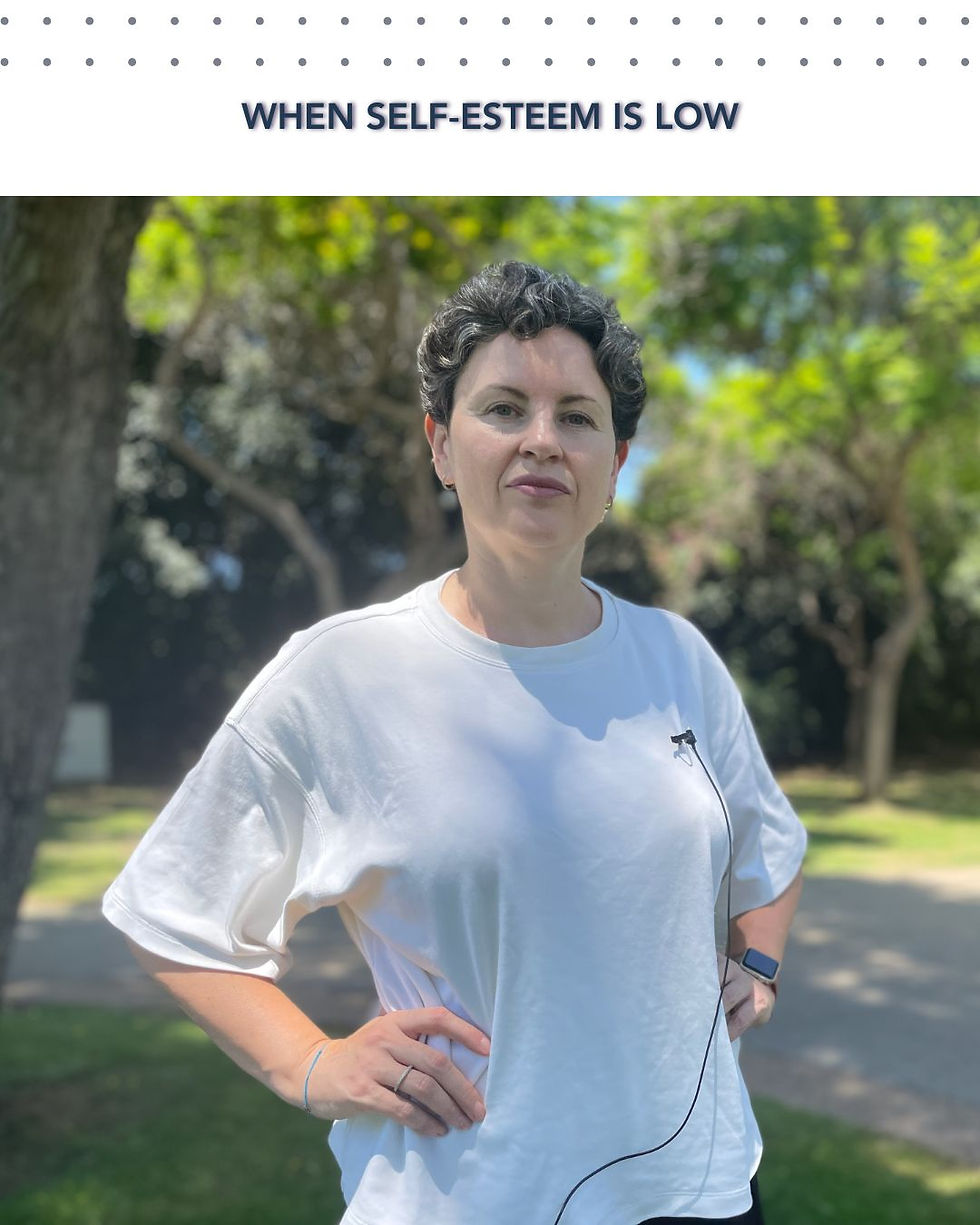When Self-Esteem is Low
- Екатерина Зильберштейн

- 15 hours ago
- 2 min read
A person with low self-esteem often lives with a constant sense that something is “wrong” with them. It doesn’t always sound like words in their head — it’s felt in the body, as tension, tightness, caution, or anxiety. Below is a closer look at what they usually experience and how it affects life.
What a person with low self-esteem feels:
Self-doubt. Even when everything goes well, there’s an inner “yes, but…” — as if achievements are accidental and success is only temporary.
Fear of judgment. People with low self-esteem are highly sensitive to others’ words, fear criticism, and try to please everyone.
Constant comparison. It’s difficult for them to feel joy for others — other people’s successes seem like proof of their own “inadequacy.”
Shame about themselves. About appearance, voice, emotions, behavior, even desires.
Shyness and avoidance. Fear of asking, of saying “no,” of being the center of attention, or of starting something new.
How it affects life:
In relationships: they may tolerate poor treatment just to avoid being alone, or avoid closeness out of fear of rejection.
At work: they choose less ambitious goals, don’t ask for promotions, and are afraid to stand out.
In the body: tightness, chronic tension, breathing difficulties, anxiety, psychosomatic symptoms.
In life satisfaction: a sense of being undeserving. Difficulty praising themselves, allowing rest, care, or recognition.
What can be done:
Notice how you speak to yourself. What words? What tone? If these words were addressed to a friend — would they stay close? Challenge your self-critical thoughts.
Work with the body. Through somatic practice, it’s possible to restore a sense of support, stability, and worthiness. The body learns a new sense of “self.”
Find grounding in your values. Not “to please others,” but “because it matters to me.” This shifts you from anxiety into inner strength.
Recognize small successes. Every step is progress. You don’t have to be perfect to be valuable.
Seek support. From a therapist, a group, or a friend. Being truly seen is already healing.
It’s important to understand: self-esteem is not built through “praising yourself in the mirror.” It grows from real experience — in the body, in actions, and in connection with others.
If you live with the constant sense that “something is wrong with me,” it is not a life sentence. It simply means you grew up in an environment where you weren’t taught to see your own worth. This can be changed. Gradually, gently, with support.










Comentarios